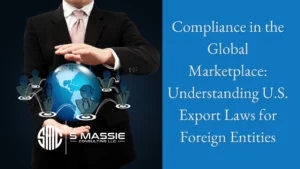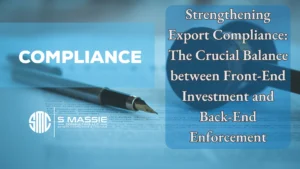Brexit Threat to the UK as Distribution Hub to EU
Brexit, the withdrawal of the United Kingdom (UK) from the European Union (EU), has had far-reaching implications across various sectors. One area significantly impacted is the UK’s position as a distribution hub to the EU. This article explores the challenges and potential threats Brexit poses to the UK’s role as a vital distribution center for European markets.

The Importance of UK as a Distribution Hub
Before delving into the potential threats posed by Brexit, it is crucial to understand the significance of the UK as a distribution hub for the EU. The UK has historically played a pivotal role in facilitating trade and commerce between the EU member states and the rest of the world. Its strategic location, efficient logistics networks, and well-developed infrastructure have made it an attractive destination for businesses seeking easy access to European markets.
The Impact of Brexit
Changes in Customs and Border Controls
One of the immediate consequences of Brexit is the introduction of customs and border controls between the UK and the EU. Previously, goods could flow freely within the EU’s single market, but now, additional paperwork, inspections, and potential delays have become part of the trading process. This change poses challenges for businesses relying on the seamless movement of goods across borders.
Tariffs and Trade Barriers
Brexit has also resulted in the reevaluation of tariff structures and trade barriers between the UK and the EU. Without a comprehensive trade agreement, businesses may face higher tariffs, making their products less competitive in the European market. This scenario threatens the UK’s appeal as a distribution hub and could lead to a decline in trade volume.
Regulatory Misalignment
Another issue stemming from Brexit is the potential misalignment of regulations and standards between the UK and the EU. Previously, goods conforming to EU regulations could be freely distributed within the single market. However, with the UK establishing its own regulatory framework, businesses now need to ensure compliance with both EU and UK standards, adding complexity and costs to the distribution process.
Supply Chain Disruption
Brexit has introduced uncertainties and disruptions to established supply chains. Companies that have built their distribution networks around the UK as a hub may need to reassess their strategies and potentially realign their operations to minimize disruptions and maintain efficient delivery to European customers.
Risks and Challenges
Increased Costs and Administrative Burden
The additional customs procedures, tariffs, and regulatory requirements post-Brexit increase costs and administrative burdens for businesses. The expenses associated with compliance and delays at the borders can erode the economic viability of using the UK as a distribution hub.
Loss of Market Access
Brexit has raised concerns about the potential loss of market access for UK businesses. The EU’s single market offered easy access to over 400 million consumers, but the new trade relationship requires businesses to navigate barriers and restrictions. This loss of frictionless trade can diminish the attractiveness of the UK as a distribution center.
Shifting Supply Chain Dynamics
The uncertainty surrounding Brexit has led to a reevaluation of supply chain dynamics. Companies are exploring alternative strategies, such as establishing distribution centers within the EU, to ensure uninterrupted access to European markets. This shift could redirect trade flows away from the UK, impacting its status as a distribution hub.
Competition from EU Distribution Hubs
Brexit has also opened up opportunities for other EU countries to enhance their distribution capabilities and attract businesses seeking to avoid the complexities associated with trading with the UK. Countries like the Netherlands, Germany, and Belgium have made efforts to position themselves as alternative distribution hubs, intensifying competition for the UK.
Mitigating Strategies
To mitigate the threats posed by Brexit and safeguard the UK’s position as a distribution hub, several strategies can be employed:
Strengthening Trade Agreements
The UK should focus on negotiating comprehensive trade agreements with the EU and other key trading partners. Favorable terms and reduced trade barriers will help maintain the competitiveness of UK-based businesses and encourage their continued use of the country as a distribution hub.
Enhancing Infrastructure and Logistics
Investments in infrastructure and logistics are crucial to ensuring smooth and efficient trade operations. Upgrading ports, customs facilities, and transportation networks will minimize delays and disruptions, making the UK an attractive choice for businesses seeking a reliable distribution hub.
Diversifying Markets and Supply Chains
Reducing dependence on a single market by diversifying both export destinations and supply chains can help mitigate risks associated with Brexit. Exploring new markets outside the EU and establishing alternative distribution centers within the EU can provide businesses with greater flexibility and resilience.
Investing in Technological Innovations
Embracing technological advancements such as automation, artificial intelligence, and data analytics can enhance the efficiency and competitiveness of UK distribution hubs. Innovations in supply chain management, inventory optimization, and last-mile delivery solutions can help offset some of the challenges posed by Brexit.
Complications and Small Businesses
Many complications have emerged as a result of Britain’s exit from the EU. After being part of the EU bloc for 47 years, the UK now needs to determine its own rules and regulations. Compliance regulations for industries like chemicals, health and beauty, electronics, and more must be established and monitored by the UK. This process, whether modeled after EU regulations or created independently, is time-consuming and potentially costly for both the government and affected industries.
Small businesses are particularly affected by regulatory changes. The New York Times reported on the challenges faced by the chemical industry and its supply chain. Due to the complex and expensive process of complying with regulations for both the EU and the UK, companies may find the UK market less attractive and opt to focus their efforts elsewhere.
The Impact on Distribution Hubs
A significant complication arises for companies that have set up distribution hubs in the UK to import products for sale throughout the EU. With the UK no longer part of the EU bloc, companies must complete paperwork and pay import duties to bring products into the UK and then repeat the process to enter the EU. This duplication
of processes essentially doubles their costs. For many companies, especially those with smaller profit margins, this additional burden may make the UK market less viable. As a result, they may need to consider setting up separate distribution hubs in other EU countries or even relocate their existing hubs from the UK to neighboring EU countries within the bloc.
This not only impacts the UK economy but also disrupts the supply chain for companies that rely on imported products for their own operations. Even US companies that have established resellers or distribution locations in the UK will need to make similar decisions.
Comprehending compliance with regulations for exporting from the US and into foreign countries can be complex and time-consuming. That’s why experts such as S Massie Consulting LLC and the US Commercial Service prove to be invaluable resources for local companies navigating these challenges.
While the complications arising from Brexit are still being revealed, it is evident that the UK’s role as a distribution hub to the EU faces significant threats. From increased costs and administrative burdens to the loss of market access and competition from other EU distribution hubs, Brexit has presented numerous challenges for the UK’s distribution sector.
However, by implementing mitigating strategies such as strengthening trade agreements, enhancing infrastructure and logistics, diversifying markets and supply chains, and investing in technological innovations, the UK can strive to maintain its status as a crucial distribution hub. It will require collaborative efforts from the government, businesses, and industry experts to adapt to the post-Brexit landscape and ensure the continued flow of goods between the UK and the EU.
Conclusion
Brexit poses a substantial threat to the UK’s role as a distribution hub to the EU. The introduction of customs controls, potential tariffs, regulatory misalignment, and supply chain disruptions have created challenges for businesses operating in the UK. However, with careful planning, proactive measures, and strategic investments, the UK can navigate these obstacles and preserve its position as a vital gateway to European markets.
Learn more by contacting us at S Massie.
FAQs (Frequently Asked Questions)
A distribution hub is a centralized location or facility where goods are stored, sorted, and distributed to various destinations.
Brexit introduces challenges such as customs controls, potential tariffs, regulatory misalignment, and supply chain disruptions, which affect the seamless flow of goods and the attractiveness of the UK as a distribution center.
The risks include increased costs and administrative burdens, potential loss of market access, shifting supply chain dynamics, and competition from other EU distribution hubs.
The UK can implement strategies like strengthening trade agreements, enhancing infrastructure and logistics, diversifying markets and supply chains, and investing in technological innovations to mitigate the risks and challenges of Brexit.
The future of the UK as a distribution hub depends on various factors, including successful implementation of mitigation strategies, adaptability of UK businesses, and collaboration with the EU. Continued efforts and proactive measures will be essential in sustaining the country’s position.


